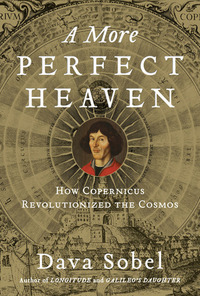Take a photo of a barcode or cover
challenging
informative
inspiring
medium-paced
I'm not a huge history buff, but Sobel does a good job making it all very readable and enjoyable. This is my second book by her (Longitude), and I imagine I'll read a third at some point.
a very enjoyable account of copernicus's life. i'd recommend listening to the audiobook for the second half of the book since it was written as a play and the performances are great.
Not a book for everyone, but an amazing story of the astronomical revolution accelerated by Capernicus
One of those books that you have no idea how to classify. In this instance it is both fiction and non-fiction. The first part and the last part of the book are the non-fiction gleaned from letters written by Copernicus and others. I was amazed at how much turmoil was in his world and am not surprised at all that Copernicus hesitated to publish. Sandwiched in the middle is an entirely speculative 2-act play that was a real treat to read. How was Copernicus convinced? Sobel has some great ideas of how it could have happened. Sadly we will never know for sure.
Interesting book about how hard the beginning of the Renaissance really was.
I realized partway through that I wasn’t that interested in a detailed history of Copernicus’ life and would have preferred a 50 page version. The writing was very bold and the play in the middle fun and imaginative, I simply ran out of interest.
I thought that I'd dislike the middle third fictional portion of this non fiction book but was surprised that had such a positive assistance to my understanding of Copernicus's life and times.
As with every other Dava Sobel book I've read, super educational, interesting, and enjoyable! Would definitely recommend. Learned a ton about Copernicus, and realized that I'd only really known about his work previously. There's a play that she wrote as an interlude in the middle, which caught me off guard at first, but then I really enjoyed it! I think she used it as a way to have a fictionalized interlude that gave life to a bunch of disconnected detail / known facts, which she then clarified and talked about afterwards. Unexpected, but totally worked for this purpose.



